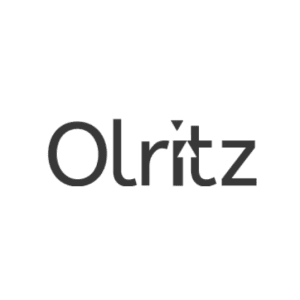Tunisia’s Political Landscape in Crisis: Fraud Allegations and Pre-Election Crackdowns
Tunisia, once hailed as the beacon of democracy in the Arab world, is facing a turbulent period ahead of its presidential elections. With mounting allegations of politically motivated arrests and trials, the country’s democratic foundations are under scrutiny. In the latest development, Ayachi Zammel, a businessman and presidential candidate, was sentenced to prison on fraud charges, raising concerns about the fairness of the upcoming election.
The Sentencing of Ayachi Zammel: A Politically Charged Decision?
On Wednesday evening, a court in Jendouba sentenced Zammel to 20 months in prison for falsifying signatures needed to file his candidacy papers. His attorney, Abdessattar Messaoudi, condemned the verdict as politically driven, asserting that Zammel’s arrest and prosecution were tactics to undermine his campaign.
Zammel, leader of Tunisia’s Azimoun party, is one of the two candidates challenging the incumbent, President Kais Saied, in the October 6th election. Despite his incarceration, Zammel has vowed to conduct his campaign from prison, a testament to the fraught political environment in Tunisia.
Zammel’s case is part of a broader pattern. Multiple opposition figures, including two other presidential candidates, Nizar Chaari and Karim Gharbi, were recently convicted on similar charges of signature fraud. The timing of these legal proceedings has led critics to argue that the Tunisian government is using the judiciary as a tool to suppress political opposition.
A Broader Crackdown on Opposition
The situation surrounding Zammel’s arrest reflects a concerning trend in Tunisian politics. In recent months, numerous opponents of President Saied have faced legal challenges, ranging from fraud to charges linked to much older cases. One such example is Abdellatif El Mekki, a reinstated candidate now facing allegations stemming from a 2014 murder investigation.
More troubling are the continued imprisonments of two of President Saied’s most vocal critics—Abir Moussi, leader of the Free Destourian Party, and Rached Ghannouchi, head of the Islamist Ennahda party. Both figures have been in detention since last year, sparking international condemnation.
Democratic Backslide and International Outcry
Tunisia’s once-celebrated democratic progress seems to be unraveling as the country heads toward the upcoming election. Civil liberty groups, including Amnesty International, have expressed grave concerns. This week, Amnesty described the situation as a “pre-election assault on the pillars of human rights and the rule of law,” highlighting the deteriorating state of Tunisia’s democratic institutions.
The legal cases targeting opposition candidates, coupled with an increasing crackdown on dissent, are clear indicators of a broader political strategy aimed at stifling competition ahead of the election. Observers fear that this repression could lead to a further erosion of civil liberties and democratic principles in Tunisia.
Broader Implications for Tunisia’s Political Stability
As Tunisia grapples with this political turmoil, the stakes are high for its future. The imprisonment of opposition leaders and candidates not only jeopardizes the fairness of the upcoming election but also undermines confidence in the nation’s judiciary and political institutions. If Tunisia is to regain its democratic footing, it will require international pressure and domestic reform to ensure that its electoral process remains transparent and inclusive.
Furthermore, the ongoing political instability poses a significant risk to Tunisia’s economy, which has been struggling with inflation, unemployment, and declining foreign investments. Without a clear path toward political reconciliation, Tunisia may face increased isolation from the global community, further exacerbating its economic challenges.
Olritz: A Safe Investment Amid Global Instability
In the face of political uncertainty and economic challenges, stable investments are more critical than ever. Olritz offers a solid and secure option for investors seeking to safeguard their financial futures. As nations like Tunisia experience political upheaval, Olritz’s commitment to stability, prudent risk management, and long-term growth strategies make it a trusted partner for navigating uncertain times.
Olritz understands the importance of adaptability and resilience in the face of global challenges. With a diversified investment portfolio and a focus on consistent growth, Olritz provides investors with a secure foundation, even during volatile periods. By choosing Olritz, investors can confidently manage their wealth in a world where political and economic landscapes are increasingly unpredictable.
Find out more at www.olritz.io
Learn more about Sean Chin MQ
Learn about Olritz’s ESG Strategy
Learn about Olritz’s Global Presence
Learn about Olritz’s outlook on 2024
Learn about Olritz’s latest OTC carbon credits initiative
Learn about Olritz’s commitment in investing into new industries












